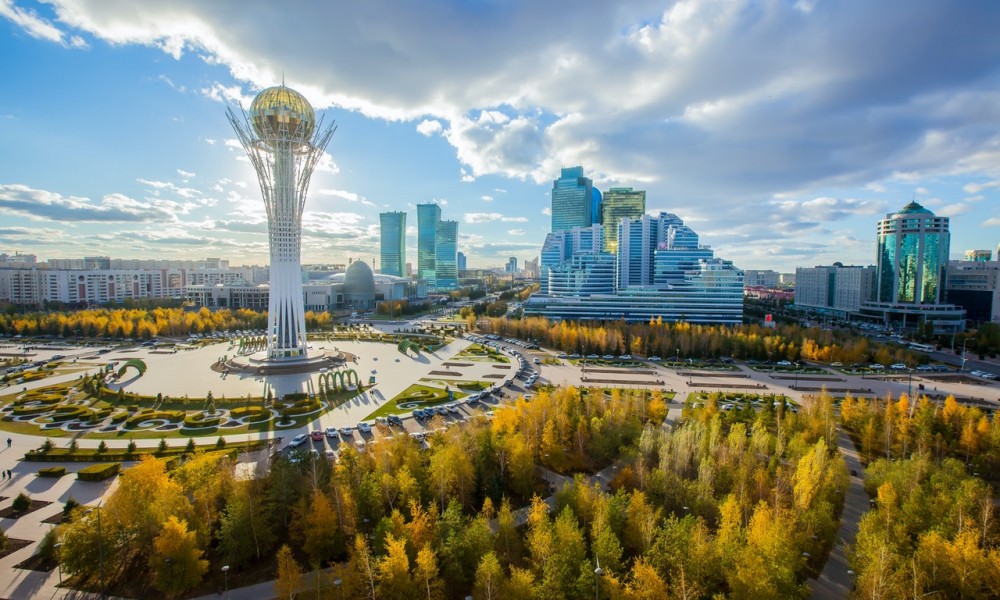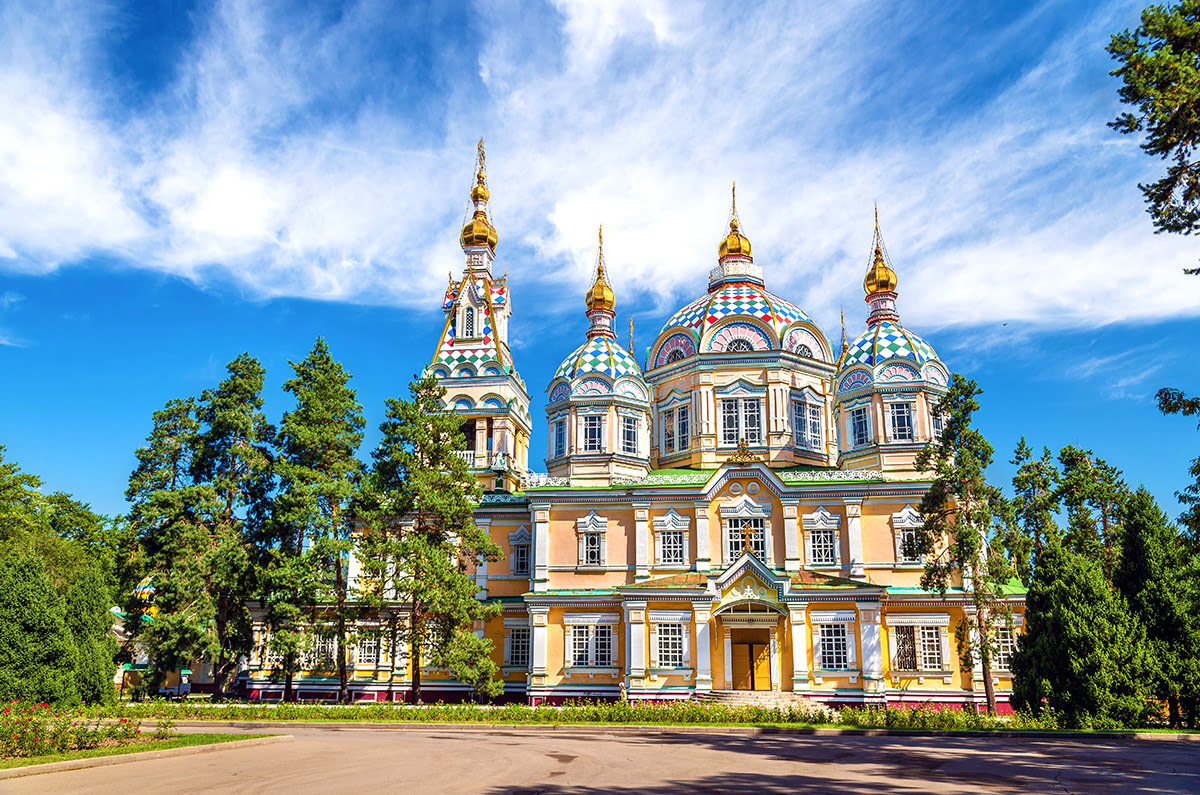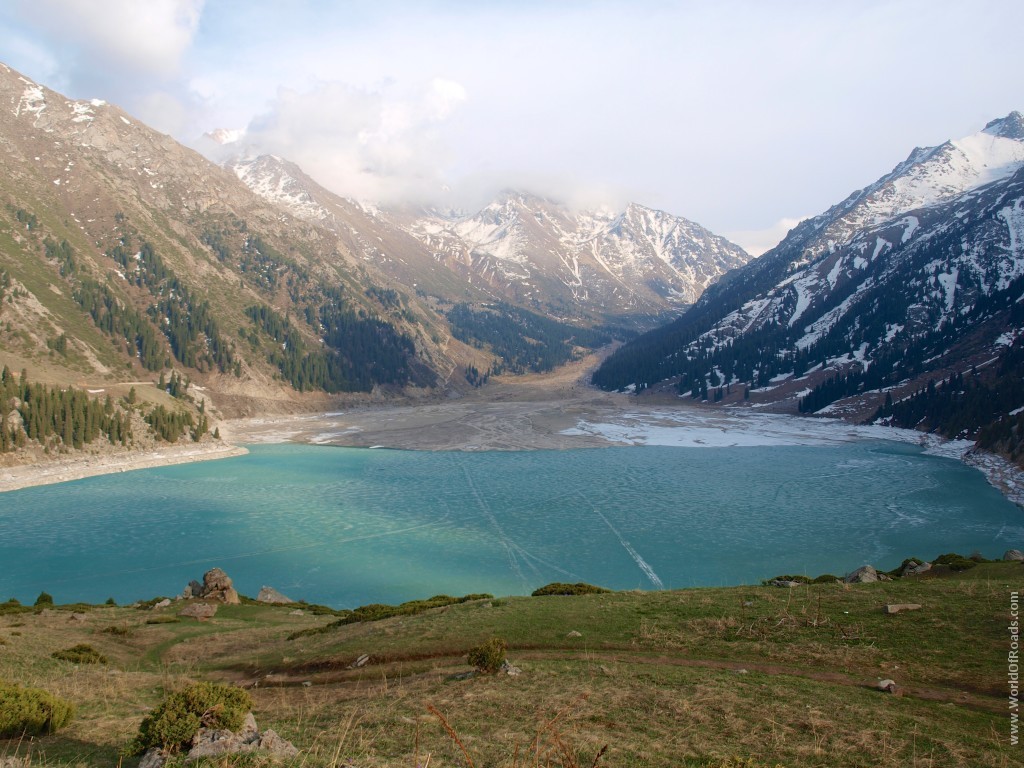10 facts about Kazakhstan

Located both in Europe and in Asia, Kazakhstan is the 9
th largest country in the world, having three
time zones. At the same time, it is landlocked without access to the world
ocean. Its territory is home to more than 120 nations and ethnic groups, and
the total population is 17.5 million people. The name of the state is literally
translated as "land of the Kazakhs".
Kazakhs have for centuries led a nomadic life, earning the reputation of decisive and courageous people who are always ready to hit the road. It is here, perhaps, for these purposes, ancient Kazakhs were the first people in the world to domesticate and ride horses. These animals are still in high esteem for the descendants of nomads. With regard to family ties, today they are very important: almost any Kazakh can easily name all of his ancestors to the seventh generation.
Steppes and deserts that make up a large part of the territory of
Kazakhstan, are not only a symbol of this country, but also an important resource,
because their deposits are very rich in minerals, without which it is simply
impossible to be engaged in many areas of human life. Among them, for instance,
is astronautic - the first and the world's largest spaceport Baikonur
Cosmodrome was built exactly in Kazakhstan. The world’s first orbiting
satellite and the first manned spaceflight with Yuri Gagarin took off into
space from this place. The complex operates successfully today, making a
significant contribution to the development of space by human, and the country
is considered to be an industrial state, engaged in metallurgy, gas and uranium
industry.

Photo agoda.com
Because of its steppe and desert climate, the Kazakhs have to withstand all the vagaries of weather. Not in any other country may be temperature gradients, such as here. Summer +45, replaced by winter -50 - is the usual thing for the local inhabitants.
At the same time, Kazakhstan is the northernmost point on
the planet, where the pink flamingos fly. These beautiful birds have chosen the
famous Korgalzhyn State Nature Reserve, listed by UNESCO. Other rare animals
which can be found here are wild horses and camels.
 Photo turetno.com
Photo turetno.com
Another natural pride of the local is the second in size worldwide perennial Lake Balkhash. Scientists are still unable to solve its main phenomenon: how one part of the water contains salty water, the other is made up of fresh water?
In 1977, in one of the Kazakh zoo an incident occurred, which forever entered
the history of observations of the animals, as one elephant with a proud name
of Batyr, which translates from Kazakh as a "hero", to the surprise
of all people, started speaking, uttering articulate sounds, imitating people,
dogs and his neighbours in the zoo. After this incident, the animal was
subjected to scrutiny by the world scientific community. Made in these days
audio-visual recording is still impressive, because the elephant clearly
violates many of the laws of science, mimicking human speech.
 Lake Balkhash. Photo worldofroads.com
Lake Balkhash. Photo worldofroads.com
Kazakhstan was the last to leave the Soviet Union, having declared its independence from the Soviet Union only on 16 th December 1991.
The Kazakhs are fond of tea, consuming an average of about 1.2 kg of this drink per person per year. Especially popular is shir chay - this national kind of tea can help those thirsty and hungry. It was invented by nomads, brewed from milk, flour, and even fat-tailed bacon to feed themselves during long journeys.
Cover photo iea.org





















